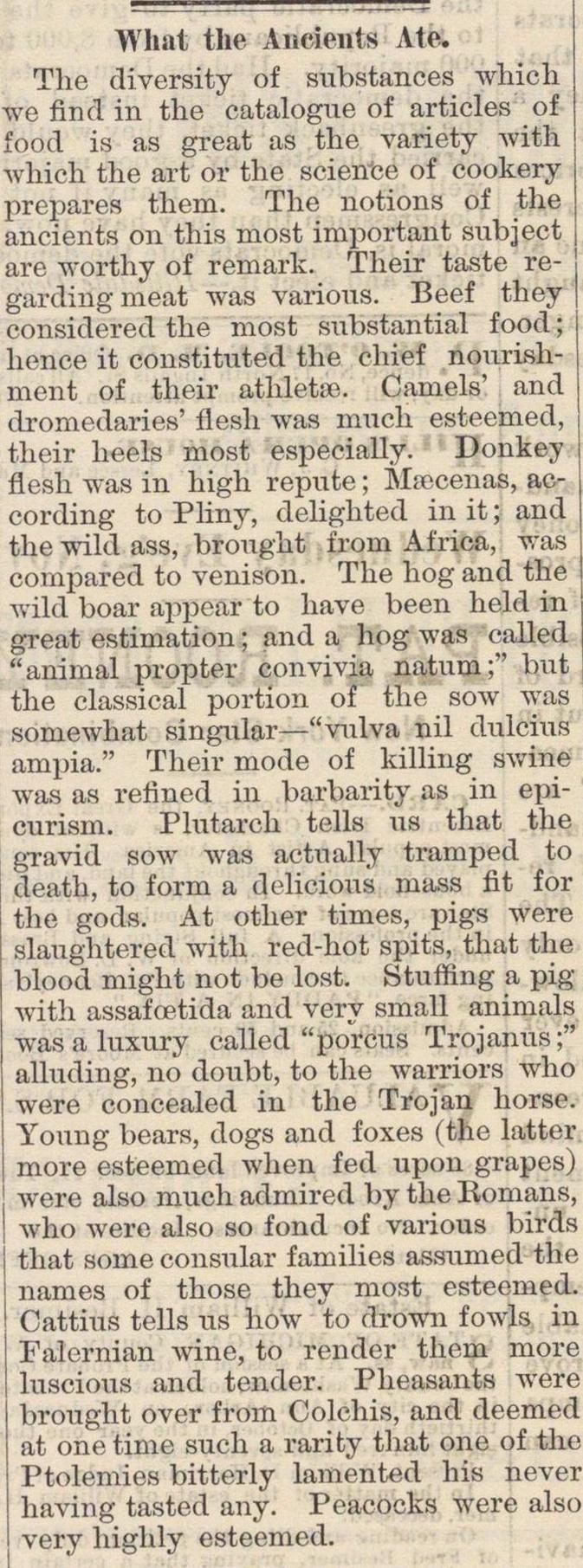What The Ancients Ate

The diversity of substances which we fin cl in the catalogue of articles of foocl is as great as the variety with which the art or the sciente of cookery prepares them. The notions of the ancients on this most important subject are worthy of remark. Their taste regarding meat was various. Beef they considered the most substantial food ; henee it constittited the chief nourishment of their athleta). Caraels' and dromedaries' flesh was nmch esteemed, their heels most espeeially. Donkey flesh was in high repute ; Msecenas, according to Pliny, delighted in it ; and the wild ass, brought from África, was compared to venison. The hog and the wild boar appear to have been held in great estimation ; and a hog was called "animal propter convivía natura;" but the classical portion of the sow was somewhat singular - "vulva nil dulcms ampia." Their mode of killing swine was as refined in barbarity as in epicurism. Plutarch tells us that the gravid sow was actually tramped to death, to form a delicious mass fit for the gods. At other times, pigs were slaughtered with red-hot spits, that the blood might not be lost. Stuffing a pig with assafcetida and very small animáis -vvasaluxury called "poreus Trojanus;" alluding, no doubt, to the warriors who were concealed in the Trojan horse. Young bears, dogs and foxes (the latter more esteemed when fed upon grapes) were also much admired by the Romans, who were also so fond of various birds that some consular families assumed the names of those they most esteemed. Cattius tells us how to drown fowls in Falernian wine, to render thein more luscious and tender. Pheasants were brought over from Colchis, and deemed at one time such a rarity that one of the Ptolemies bitterly lamentad his never having tasted any. Peacocks were also very highly esteemed.
Article
Subjects
Old News
Michigan Argus